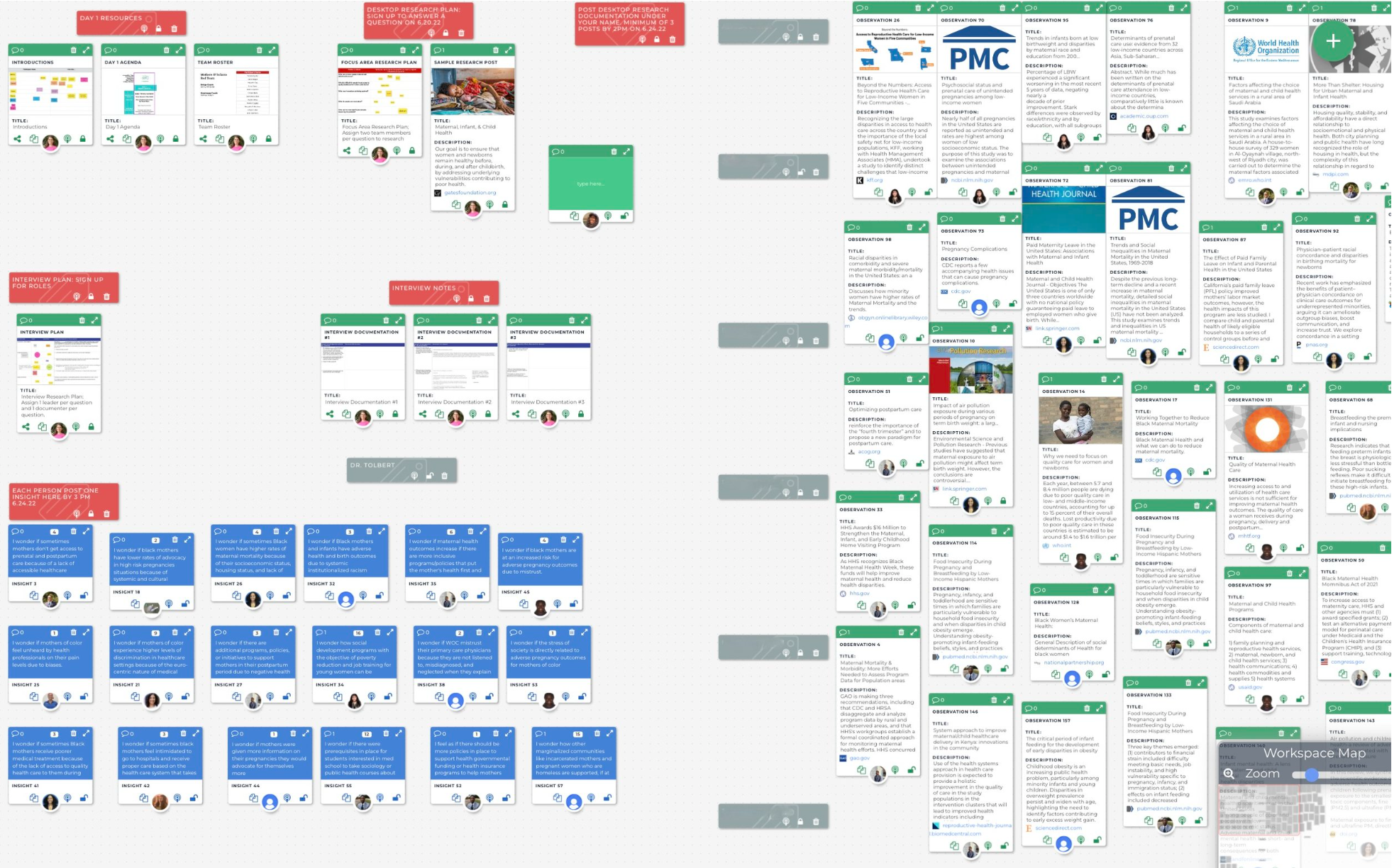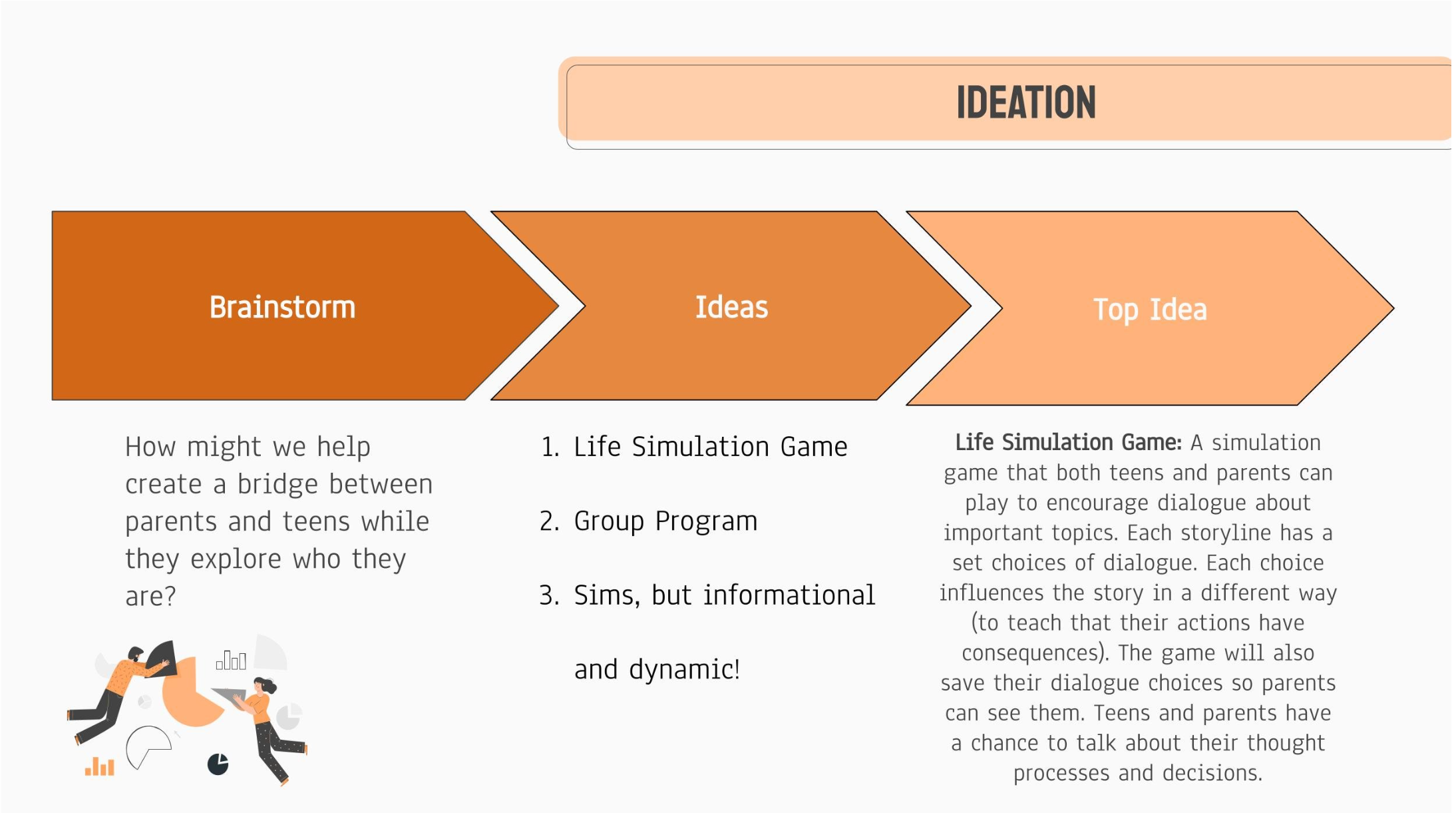Morehouse College Public Health Innovation Jam Leads to Innovative Solutions to Real-World Public Health Problems
Industry: Higher Education and Public Health
Location: Atlanta, GA
Tactic: Solution Design Sprints: An Experiential Learning Approach
Results
Learned design thinking and virtually collaborated to address real-world problems
Generated creative and innovative solutions to complex public health challenges
Gained recognition from prominent organizations, including the CDC and the U.S. Department of Health and Human Services (HHS)
About Morehouse College and The Project IMHOTEP Program:
Morehouse College is a private historically Black liberal arts college (HBCU) located in Atlanta, Georgia. For over 150 years, driven by innovation, technology, global cultural dexterity, and a liberal arts foundation of knowledge, Morehouse has prepared young men to change the world.
As part of their Public Health Institute, Morehouse has hosted the Lewis Scholars' Imhotep Project, an internship program designed to increase the knowledge and skills of underrepresented minority students in biostatistics, epidemiology, and occupational safety and health. The program partners with experts at the CDC of Atlanta to gain education training, participate in a one-on-one mentorship, conduct research, and participate in community service opportunities.
The Challenge
Morehouse College’s Innovation Center and the Lewis Scholars IMHOTEP Project wanted to put together a program for graduate-level students to address complex public health issues affecting at-risk populations. To tackle these issues effectively, they sought to harness innovative solutions and engage students in a collaborative design thinking process.
The goal was to empower students to generate innovative ideas and prototypes that could improve public health outcomes in several areas, such as mental health, gun violence, health disparities, STIs, and more. To partner in coaching and facilitating participants, Morehouse turned to Bridge Innovate for help.
The Solution
To support the goals of the program, Bridge Innovate, in partnership with MIEC Center, Project IMHOTEP, and the Centers for Disease Control and Prevention's Public Health Leader Fellowship Program (PHLFP), organized a 3-day virtual series of Solution Design Sprints competition over a weekend.
The program brought together 52 Public Health Scholars from Morehouse College, who were divided into six teams with dedicated focus areas: Mental Health, Gun Violence, Health Disparities, STIs and HIV, Mothers and Infants, and Youth and Teens. The Scholar teams were guided by coaches through the design thinking process: Field Research & Empathize, Ideate, Prototype, and Solution Pitch. And all of it would be done virtually.
Using Bridge’s digital studio powered by Sprintbase™, participants first did a deep dive into their focus area. In this stage, Bridge worked with Morehouse and the CDC to preschedule 1:1 interviews with public health subject matter specialists for each team to comprehensively understand the issue. They collaborated on research and questioning and cultivated empathy with those impacted. For example, one team was assigned the public health issue of health disparities. Before starting any ideation to determine how to address this issue, they performed extensive research as a team, listing sources and observations about the problem that needed solving. In doing so, they increased understanding and empathy towards those who often struggle with their health alone or without the means to access medical care. This empathizing enabled the teams to address the core issues at hand in their proposal and do so with extensive care.
Sprintbase™ board
Using Sprintbase, students can collaborate virtually on each phase of the design thinking process. As seen here, students gather research to develop empathy.
Following their research, teams moved to the “Ideate” phase. After voting on key insights from their research, they used a variety of brainstorming techniques from IDEO and Google Sprints to develop potential solutions. Next, based on insights from the empathy stage, they created a prototype storyboard of the user experience to further explore and refine their ideas. In the third stage, the teams defined an approach to continue to test and mature the idea for community rollout.
Finally, the teams created a solution pitch to present to a panel of judges from the CDC and public health arena, noting the need, solution, user experience, and next steps to continue to test and explore the idea.
The Result
The program culminated with the virtual pitch event—“Show the World”—wherein public health scholars pitched their group’s solutions to the challenge in context with their specified public health issue. Their presentations were reviewed by a panel of experts—including judges from The Centers for Disease Control and Prevention (CDC), The United States Department of Health and Human Services (HHS), and Morehouse College. Through deliberation, scoring, and feedback, the teams with the best prototypes and pitches were recognized and awarded.
Ideation Example
In one team’s presentation, they share the ideation process to address problems experienced by youth and teens. Through brainstorming and discussion, the team prototyped their top idea: the Life Simulation Game.
With Bridge Innovate’s facilitation and tools, the program was a great success. It enhanced learning, virtual collaboration, and provided valuable training on design thinking, research, and problem-solving. And, because of the program’s success, Morehouse has repeated it in subsequent years. The following year, Bridge ran the Solution Design Sprints as well as three additional innovation programs, including TRIO Upward Bound, TRIO Education Talent Search, and the Bonner Scholars Program.
In just a weekend, students covered a lot of ground. They learned design thinking skills, developed innovative solutions, deepened their knowledge of the subject area, built relationships, and had fun. Through the process, the participants imagined solutions to real-world problems, fostering innovation, collaboration, and recognition of the potential for creative solutions to improve public health outcomes for at-risk populations.
Looking to tackle a real-world business challenge? Contact us to learn about our Solution Design Sprints or partner with us to host your own innovation session.



